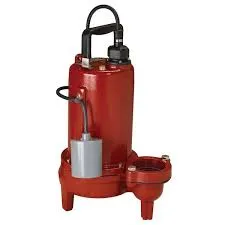Uighur
- Afrikaans
- Albanian
- Amharic
- Arabic
- Armenian
- Azerbaijani
- Basque
- Belarusian
- Bengali
- Bosnian
- Bulgarian
- Catalan
- Cebuano
- Corsican
- Croatian
- Czech
- Danish
- Dutch
- English
- Esperanto
- Estonian
- Finnish
- French
- Frisian
- Galician
- Georgian
- German
- Greek
- Gujarati
- Haitian Creole
- hausa
- hawaiian
- Hebrew
- Hindi
- Miao
- Hungarian
- Icelandic
- igbo
- Indonesian
- irish
- Italian
- Japanese
- Javanese
- Kannada
- kazakh
- Khmer
- Rwandese
- Korean
- Kurdish
- Kyrgyz
- Lao
- Latin
- Latvian
- Lithuanian
- Luxembourgish
- Macedonian
- Malgashi
- Malay
- Malayalam
- Maltese
- Maori
- Marathi
- Mongolian
- Myanmar
- Nepali
- Norwegian
- Norwegian
- Occitan
- Pashto
- Persian
- Polish
- Portuguese
- Punjabi
- Romanian
- Russian
- Samoan
- Scottish Gaelic
- Serbian
- Sesotho
- Shona
- Sindhi
- Sinhala
- Slovak
- Slovenian
- Somali
- Spanish
- Sundanese
- Swahili
- Swedish
- Tagalog
- Tajik
- Tamil
- Tatar
- Telugu
- Thai
- Turkish
- Turkmen
- Ukrainian
- Urdu
- Uighur
- Uzbek
- Vietnamese
- Welsh
- Bantu
- Yiddish
- Yoruba
- Zulu
Telephone: +86 13120555503
Email: frank@cypump.com
ئاۋغۇست . 08, 2024 10:00 Back to list
Efficient Solutions for Handling Agricultural Slurry with Advanced Pump Technologies and Best Practices
Understanding Agricultural Slurry Pumps Essential Tools for Modern Farming
Agricultural slurry pumps play a crucial role in modern farming practices, especially in managing waste and nutrient-rich materials generated on farms. These specialized pumps are designed to handle the thick, viscous materials that often arise in agricultural settings, such as manure, slurry, and other liquid fertilizers. Their importance cannot be overstated, as they contribute significantly to the efficiency and sustainability of agricultural operations.
What Are Agricultural Slurry Pumps?
Agricultural slurry pumps are mechanical devices specifically engineered to transport slurry — a combination of liquid and solid waste. This fluid typically contains manure, plant residues, water, and chemical fertilizers, all of which can be challenging to move due to their density and viscosity. These pumps are designed to handle such materials without clogging and are essential for the effective management of livestock waste and the application of nutrients to farmland.
Types of Slurry Pumps
There are several types of slurry pumps commonly used in agriculture
1. Centrifugal Pumps Often used for liquid manure, these pumps utilize rotational energy from a spinning impeller to move the slurry. They are versatile and can handle moderate levels of solids.
2. Progressive Cavity Pumps These pumps feature a helical rotor that moves the slurry through the pump in a continuous flow. They are particularly effective for handling highly viscous materials and are employed in both liquid and solid waste applications.
3. Submersible Pumps Designed to operate submerged in the slurry, these pumps are ideal for transferring waste from pits or lagoons to storage tanks or treatment facilities.
4. Diaphragm Pumps Utilizing a flexible diaphragm to create suction, these pumps are effective for applications requiring a gentle handling of solids and are often used in smaller operations.
agricultural slurry pumps

Benefits of Using Slurry Pumps in Agriculture
1. Efficiency Slurry pumps significantly reduce the time and labor required to manage waste on farms. This efficiency allows farmers to focus on other critical aspects of their operations.
2. Improved Fertilizer Application By facilitating the transport of nutrients from animal waste, slurry pumps enable precise application to fields, optimizing the use of valuable resources.
3. Environmental Protection Proper management of slurry helps prevent pollution and environmental degradation. Efficient pumping systems reduce the risk of overflow and runoff, protecting local waterways from contamination.
4. Cost-Effectiveness Investing in a robust slurry pump can save farmers money in the long run. By streamlining waste management processes, these pumps reduce labor costs and improve the overall productivity of farms.
Maintenance and Best Practices
To ensure the longevity and efficiency of agricultural slurry pumps, proper maintenance is crucial. Regular inspections for wear and tear, checking seals, and ensuring that the pump is free of clogs are essential practices. Additionally, farmers should be educated about the operational limits of their pumps and avoid overloading them with excessively thick materials.
Conclusion
Agricultural slurry pumps are indispensable tools in today's farming landscape, helping to manage waste effectively while promoting sustainable agricultural practices. With advances in technology, these pumps continue to evolve, offering improved performance and efficiency. As the agriculture industry faces increasing pressure to produce more food sustainably, the role of slurry pumps will only become more pronounced, highlighting their significance in modern farming. Investing in high-quality slurry pumps is not just a choice for farmers; it’s a step towards a more sustainable and productive agricultural future.
-
pipeline pump - Chi Yuan Pumps Co., LTD.|High Efficiency&Low Noise
NewsJul.31,2025
-
ISG Series Vertical Pipeline Pump - Chi Yuan Pumps Co., LTD.|High Efficiency, Energy Saving, Low Noise
NewsJul.30,2025
-
ISG Series Vertical Pipeline Pump- Chi Yuan Pumps|High Efficiency&Low Noise
NewsJul.30,2025
-
ISG Series Vertical Pipeline Pump-Chi Yuan Pumps Co., LTD.|High Efficiency&Energy Conservation
NewsJul.30,2025
-
ISG Series Vertical Pipeline Pump - Chi Yuan Pumps Co., LTD.|Advanced Hydraulic Design&Energy-Efficient Solutions
NewsJul.30,2025
-
ISG Series Vertical Pipeline Pump - Chi Yuan Pumps Co., LTD.
NewsJul.30,2025










